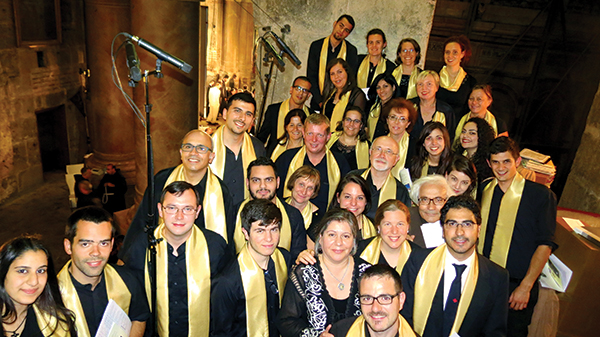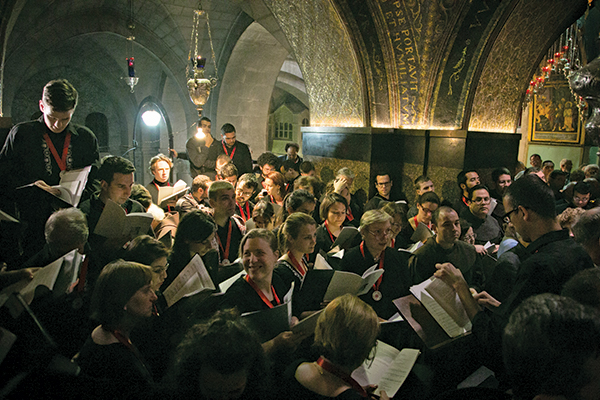The Magnificat Choir of the Custody of the Holy Land was founded in 1850 by a number of clerics in Jerusalem. After the establishment of the Terra Sancta Boarding School in 1870, the choir expanded and graduates of the school began volunteering their services to the choir. These included Augustine Lama, a choir conductor and organist, and later, organist Salvador Arnita. During the late 1950s, the Franciscan priests took charge of conducting the choir. Among the most famous were Father Teofilo Ciardini and Father Antonio Foley, who developed the Parish Choir. Over the course of time, these two choirs combined and began singing both in Latin and in Arabic throughout the churches of the Holy Land.
At present, the choir has the privilege of having Father Armando Pierucci, who enriches the repertoire of the choirs with his compositions and special arrangements. The conductor of the choir is Mrs. Hania Soudah Sabbara, who devotes her time to teaching music and singing to all ages. The Choir of the Custody of the Holy Land is composed of thirty members, the majority of which are young Palestinian music students, along with few expatriate volunteers who come to the Holy Land for short periods.
The Magnificat Institute (school of music) provides for all the needs and logistics of the choir, which include the rehearsal hall, the music library, voice lessons, and any other needs of the choir. Since 2003, the choir has seen a revival in its activities, while keeping its religious goals as the top priority. The choir has also expanded its repertoire to include secular music.
The choir’s rich, sacred repertoire of music is sung during the official celebration of the high masses of the liturgical year. Not only is the choir privileged to be singing during these official festive masses, but also to be singing at the actual holy sites that mark the history of Christianity.
As for the secular music, the choir has added to its religious songs a variety of operatic songs, folk songs, and more. These have been used in addition to the sacred music in their concerts, which include at least one annual concert in Jerusalem.


